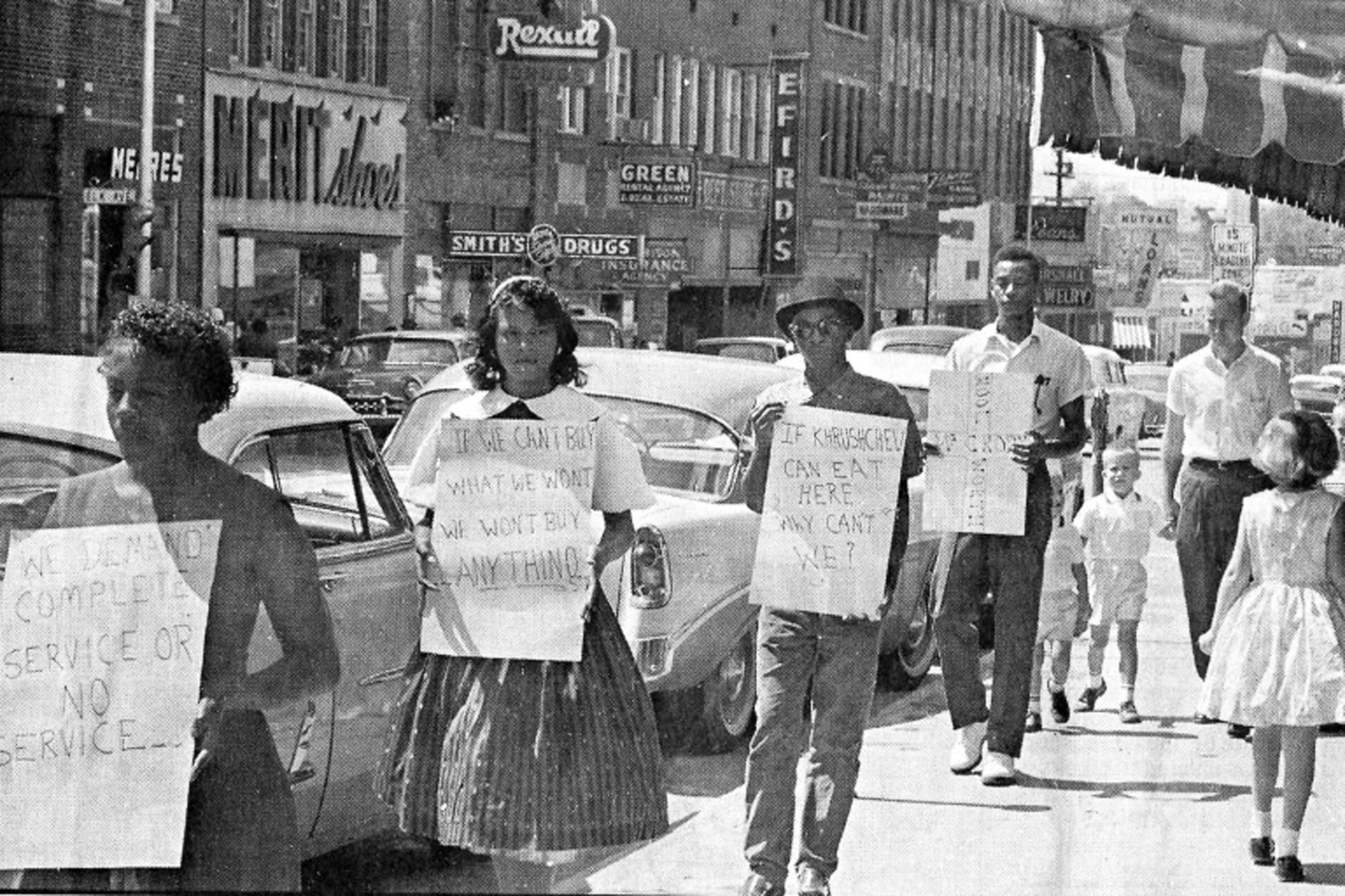Woman came for a funeral, left with a history lesson
The Herald of Rock Hill
ROCK HILL - Charlotte resident Melanie Tindley came to Rock Hill to attend the funeral of a civil rights leader she never met.
She left town two hours later with so much more than the message she heard at James Frank Wells' funeral service. She got the history lesson of a lifetime.
Tindley met David Williamson Jr., one of the Friendship Nine civil rights leaders, who sat with Wells in protest at Rock Hill's McCrory's lunch counter in 1961.
The black men and seven of their classmates from Rock Hill's Friendship College, which closed decades ago, were arrested for staging the sit-in at the whites-only lunch counter. They spent a month doing hard labor at a prison camp, forgoing bail. On principal. Their "Jail, no bail!" slogan underscored the group's commitment to civil rights.
Wells, a prominent Rock Hill lawyer, died July 8 at the age of 77.
"When I heard about Mr. Wells, I wanted to come and honor his legacy because without the legacy of him and his generation, I wouldn't have had the educational or professional opportunities that I enjoy today," Tindley said.
Gwendolyn Segers, a niece of Wells, talked about the legacy her uncle left to a crowd of more than 200 mourners.
"(He) taught us about the South, taught us about being humanitarians, taught us about paving our way in society and one day being somebody," Segers said. "I am so proud to stand here as a niece and say 'Uncle James, job well done.'"
Wells lived a life of service to others, the Rev. Joseph Wilson said at the funeral.
"He was a prince dedicated to seeking a life of justice for all of God's children," he said. "A life based on trying to stand up to injustice wherever he found it."
After the funeral, Tindley heard the old lunch counter was still around. The Missouri native headed to downtown Rock Hill to visit the spot where the men were arrested.
McCrory's is no longer around, but the original bar stools, etched with the names of the nine men, are a permanent fixture at the Five & Dine Cafe, where the old lunch counter once stood.
Tindley stopped in front of the cafe to read a historical marker before heading inside. As she opened the door, her history lesson was waiting.
Williamson was sitting at Wells' spot at the bar next to his brother.
"Your whole generation, I owe a debt of gratitude to," Tindley said to Williamson.
Her mother's class at the University of Missouri in 1955, she said, was the first integrated class.
"I would not be a senior engineer for a major Fortune 50 corporation today had it not been for everything that your generation did," she told Williamson. "I not only owe you a debt of responsibility and gratitude, but I also owe you the commitment to keep doing more of the same and taking the responsibility forward."
Williamson said "that's all I want" as he shook her hand.
"The reason we did it, it was for the other people, it wasn't about us," Williamson said.
Tindley walked around the restaurant taking photos of the Friendship Nine's bar stools as Williamson ordered a club sandwich.
When the server brought over the tab, Tindley paid it. Williamson had the sandwich boxed up so he could take Tindley on a personal tour of the Freedom Walkway nearby.
The alley has memorials and artwork dedicated to the Friendship Nine and other Rock Hill civil rights leaders.
Tindley and Williamson shook hands and promised they would meet each other again one day.
More Articles to Read

